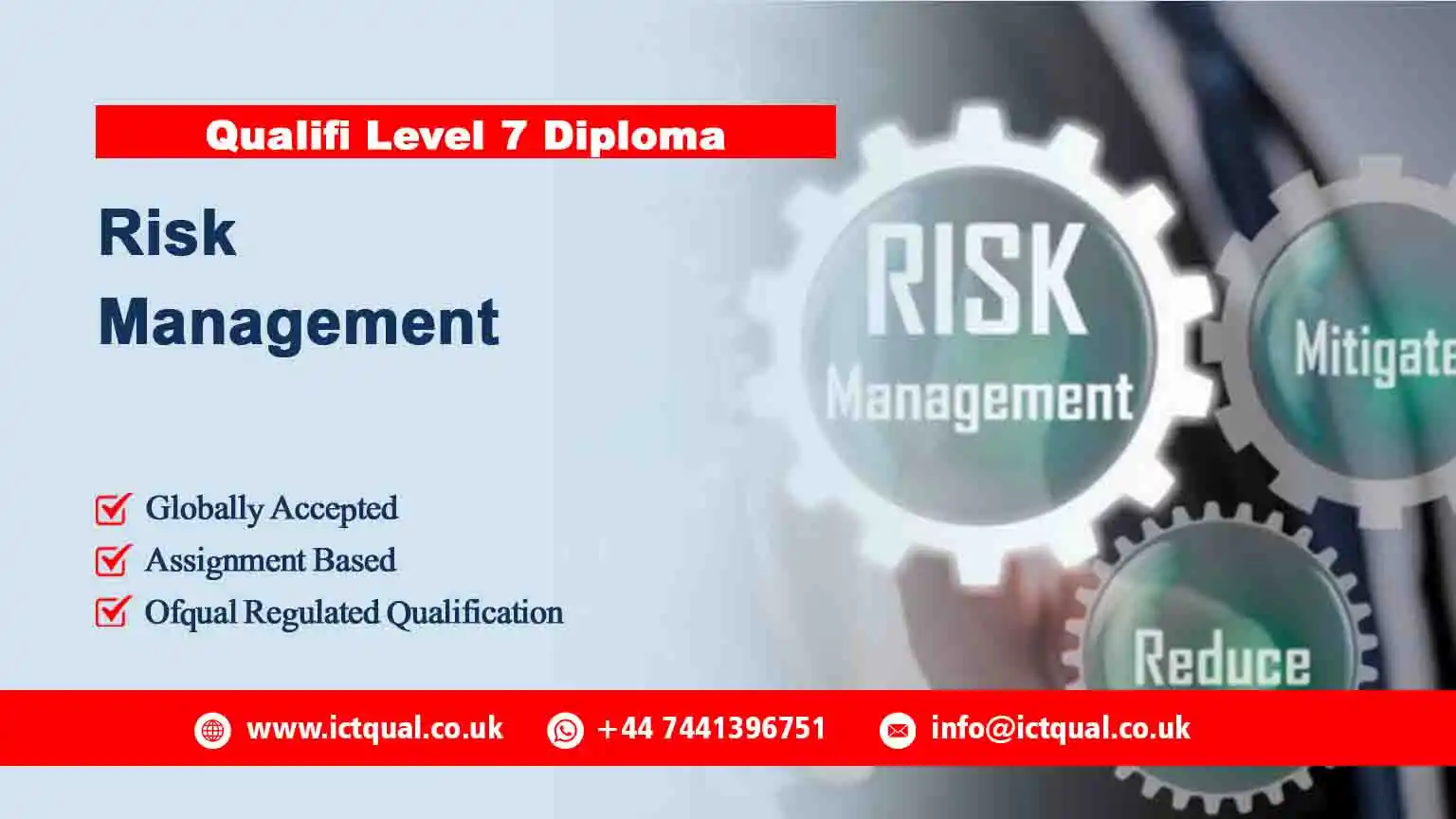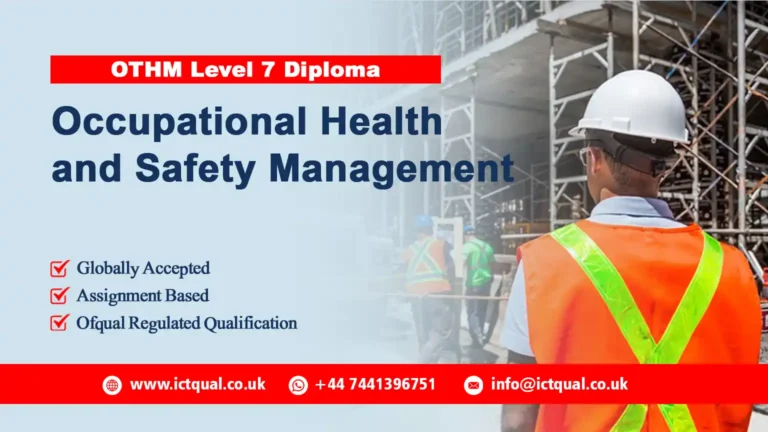In a world where risks are increasingly complex and unpredictable, effective risk management has become a cornerstone of organizational success. The Qualifi Level 7 Diploma in Risk Management offers an advanced and comprehensive approach to understanding and managing risks, equipping professionals with the skills needed to navigate uncertainty and drive organizational resilience. This prestigious qualification is designed for senior professionals and risk managers seeking to deepen their expertise and enhance their ability to manage risk in today’s dynamic business environment.
The Qualifi Level 7 Diploma in Risk Management is an advanced qualification aimed at providing in-depth knowledge and practical skills in the field of risk management. The program is tailored for experienced professionals and risk management practitioners who aspire to take on senior roles or enhance their existing risk management capabilities. It offers a thorough exploration of risk management principles, strategies, and practices, preparing participants to address complex risk challenges and contribute to organizational success.
For professionals seeking to advance their risk management skills, this diploma offers a comprehensive education in both foundational and advanced risk management principles. Graduates gain the expertise needed to address complex risk challenges and implement effective risk management strategies.
The Qualifi Level 7 Diploma is a valuable asset for career advancement. It enhances professional credibility and opens doors to senior risk management roles. The advanced skills and knowledge gained through the program make graduates highly attractive to employers seeking experienced risk managers.
The Qualifi Level 7 Diploma in Risk Management represents a significant opportunity for professionals aiming to excel in the field of risk management. With its comprehensive curriculum, focus on practical application, and global perspective, this diploma provides the advanced skills and knowledge required to navigate uncertainty and drive organizational success. For those committed to mastering the art and science of risk management, this qualification offers a path to achieving excellence and enhancing organizational resilience.
The Qualifi Level 7 Diploma in Risk Management is a premier qualification designed to provide senior professionals and risk management practitioners with advanced knowledge and skills in the field of risk management. This comprehensive course is tailored for individuals seeking to deepen their expertise and enhance their ability to manage complex risks effectively, ensuring organizational resilience and success in an increasingly volatile business environment.
The diploma offers a thorough exploration of risk management principles, methodologies, and best practices. Participants begin by studying foundational concepts in risk management, including risk identification, assessment, and control. The program covers a range of frameworks and methodologies, ensuring that learners gain a robust understanding of both traditional and contemporary approaches to managing risk. This foundational knowledge is crucial for developing and implementing effective risk management strategies.
A key feature of the Qualifi Level 7 Diploma is its focus on advanced risk analysis and evaluation. Participants learn to apply sophisticated tools and techniques for assessing risks, including both quantitative and qualitative methods. This in-depth analysis enables them to identify potential risks, evaluate their impact, and develop targeted mitigation strategies to address complex risk scenarios.
The course also emphasizes strategic risk management, highlighting the importance of aligning risk management practices with organizational goals and business objectives. Participants explore how to integrate risk management into strategic planning processes, ensuring that risk considerations are embedded in decision-making and support overall organizational success. This strategic alignment helps organizations enhance their resilience and navigate uncertainties more effectively.
Practical application is a central component of the diploma. Through case studies, simulations, and project-based assignments, participants apply theoretical concepts to real-world scenarios. This hands-on approach enhances their problem-solving and decision-making skills, preparing them to tackle diverse and complex risk challenges in their professional roles.
Leadership and communication are integral aspects of the program. Participants explore strategies for leading risk management initiatives, managing stakeholder relationships, and fostering a risk-aware culture within organizations. The diploma equips learners with the skills needed to communicate risk-related information effectively and drive organizational risk management efforts.
Additionally, the diploma incorporates a global perspective, examining international risk management trends, cross-border risks, and global best practices. This global outlook prepares participants to manage risks in a diverse and interconnected business environment, ensuring that they are equipped to address international and cross-cultural risk factors.
The Qualifi Level 7 Diploma in Risk Management offers a comprehensive and advanced education in risk management. With its focus on foundational principles, advanced analysis, strategic integration, practical application, and global perspectives, the diploma provides professionals with the essential skills and knowledge needed to excel in senior risk management roles and contribute to organizational resilience and success.







